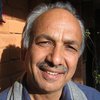
Hetaunda convention of the Unified Communist Party of Nepal-Maoists may have been politically significant in many ways for the Party and politics of the nation, but it has posed one biggest threat to the future of democracy in a scale never before. The scale is bigger not only because UCPN-M decided to do away with the cardinal principle of democracy—the separation of powers—but because the other Pro-democracy parties, mainly the Nepali Congress as well as the Communist Party of Nepal-Unified Marxist Leninist (CPN-UML) chose to endorse that.
President Ram Baran Yadav has thrown open the door and rooms of Shital Niwas for the four-party task force. He is a party in the exercise of dismantling independence of judiciary and the principle of separation of powers. He has been putting pressure on individual leaders from the UML , and also conspiring with Individual congress leaders to have the game through. In all these exercises and attempts, democracy, its principles and values have been the biggest casualty.
CPN-UML central committee with an overwhelming majority opposed CJ taking over as the Executive head. So did the Nepali Congress Central committee. Leaders of both these parties , under their constitution, are obliged to follow the rule of the Party. If their respective central committees have authorised their leaders to take a suitable stand on the issue, that stand can not undermine the decision of the central committee which is an apex level decision making body. But that is what Sushil Koirala, Ram Chandra Poudel and Sher Bahadur Deuba in the case of Nepali Congress and Jhalanath Khanal and K P Oli in the case of UML did.
The origin point of the dangerous idea to have CJ as the Prime Minister might have been anywhere, inside or outside Nepal. UCPN-M in general and its Chairman Prachanda agreed to be the agent of that move. But Prachanda disgraced his delegates when he sought their approval to the move in Hetaunda and they all lent their support in good faith, without realising the implication of such a move. UCPN-M and its splinter group, Communist Party of Nepal-Maoists are not friends any more, although calling them ‘bigger foes’ would be too early at the moment. But CPN-M leader Mohan Baidya Kiran said publicly that giving CJ the twin charge of judiciary and executive would dismantle the principle of separation of powers and demolish the foundation on which the multi-party political system works. The Party also felt that there was much larger design in the whole exercise and most of the Nepali actors were ‘working like pawns”. What was the compulsion before the top leaders of the NC and UML to go against their central committee? Who were they influenced by? Who did they interact with in between? These are the questions their central committees should be asking these leaders and make them totally accountable. This is the time that the Party must assert , and refuse to be a rubber stamp at the hand of their leaders.
In the current context, President Yadav and Prime Minister Bhattarai have one thing in common that makes them arrogant , in-transparent and un-accountable to the people and the nation: that is absence of representative body that could unseat them from power. In absence of it, the duo chose to defile the only other institution—the judiciary—by alluring executive post to the Chief Justice. A judiciary or its head who falls into such trap so easily would be discredited in the esteem of the people. Unfortunately, even after (and if) Regmi’s decline, the Judiciary will continue to remain a suspect, and the question that would be asked in future is : are judges any better than our politicians?
What is the way out now for corrective measures? It should be left to the conscience of the CJ to decide how he wants to rectify the loss of image of judiciary for his having negotiated with politicians for power even while he was in power. As far as President Yadav is concerned, the punishment suited to him should now be decided as part of the package deal. President conspired to make political parties failure, and the leaders –given their lack of vision and lust for power—chose to get into that trap. The leadership can still make their parties stronger by taking the responsibility for these lapses and pave the way for new leadership. Theirs and President Yadav’s departure and a conscientious panacea by CJ would minimise the damage caused to the party system , image of judiciary as well as the systems of checks and balance.

Yubaraj Ghimire
Ghimire is a Kathmandu based journalist.
- Manmohan Singh And The Churn In Nepal
- Jan 08, 2025
- Why ‘Revolutionary’ Communist PM Prachanda Went To Temples In India
- Jun 08, 2023
- Why China Is Happy With Nepal’s New PM
- Jan 03, 2023
- Prachanda Sworn In As PM: New Tie-ups In Nepal, Concern In India
- Dec 27, 2022
- Young TV Anchor As Its Face, RSP Rise Takes Nepal By Surprise
- Nov 23, 2022














